Born and raised in India, Sheela Gowda started her artistic career primarily as a painter. Her progression into installation work was her reaction to the rapid economic growth in India in the 1990s. Sky-high grey and bland apartment complexes were stripping the communities of vibrant, decades-old architecture
Gowda is known for process-oriented work in post-minimalist abstraction in her installations. She is inspired by the everyday labour of marginalized communities, especially poor women workers in India.
Gowda received her MA in painting from the Royal College of Art, London in 1986. She was a finalist for the 2014 Hugo Boss Prize. She won the 2019 Maria Lassnig Prize.
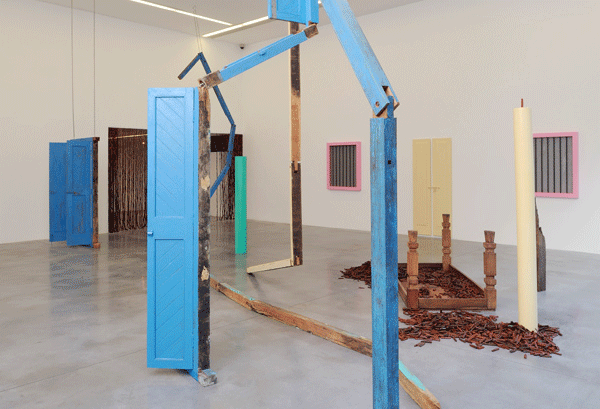
Gowda pushes people to look beyond the façade of modernity and understand how modern forms of construction and building practices are destroying native forms of architecture and living.
Her installations are built from recycled architectural elements—doorjambs, window frames, and wooden tables—and highlight how native building materials and design techniques create more communal and social spheres of living within the community.
Gowda, in an interview with Trevor Smith, said, “I was unable to find the means within painting to translate certain strong reactions to immediate issues. I do not like to use my work as a vehicle for making strident statements, and needed subtler means.”
Gowda handcrafts her materials and critiques the role of the labour market and cheap factory-produced products. In her installation Of All People (2011), she hand-carved figurines that resemble figurines used in certain social rituals. These figurines with small incisions often signify the faces of various gods.
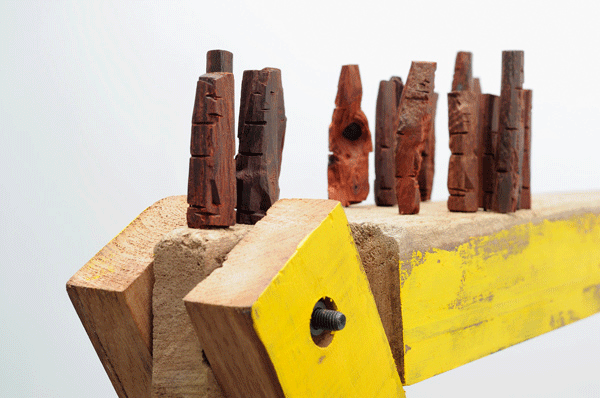
Nowadays, these figurines are cheaply produced and most end up in landfills or garbage dumps.
Of All People is, thus, critical of the United Nations Sustainable Development Goals (SDGs), especially Industry, Innovation and Infrastructure. While she does not vilify innovation per se, she wants people to evaluate the ethicality of new technologies and whether companies value the labour of poor workers.
Gowda then photographed the faces on the figurines and placed them high on the walls. This is similar to the Indian tradition of placing photos of deities or elders above other photos in the house. She wants the audience to understand the systems of power in place: crafts persons, deities, industries, politicians, etc.
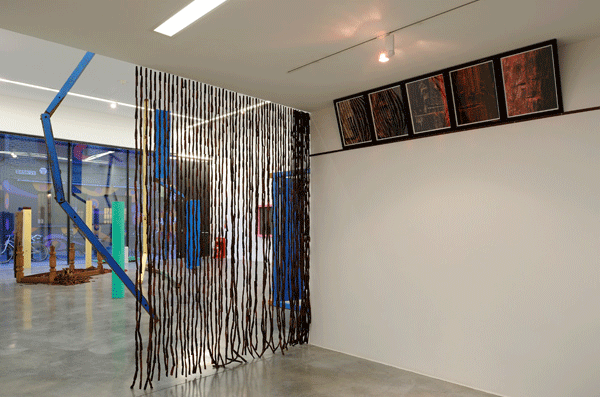
In another installation And Tell Him of My Pain (1998/2001/2007), Gowda passed two 700-ft-long threads through a needle, making them into a set of 350-ft-long ropes. She then added blood-red pigment to glue and used that glue to stick a handful of these threads. The end of the ropes was tasselled with several needles.
As Geeta Kapur explains in her book, When Was Modernism: Essays on Contemporary Cultural Practice in India, Gowda makes the red ropes appear as “disembowelled innards,” that emphasize the body’s pain as a “strange ritual of self-perpetuation”.
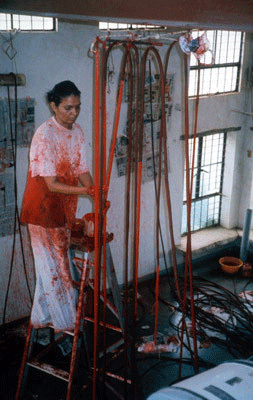
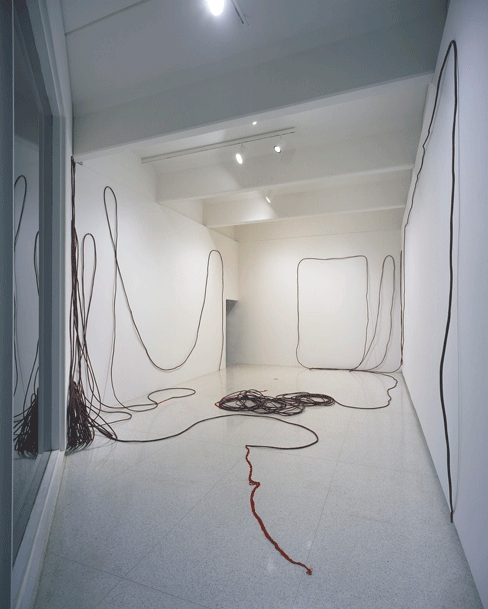
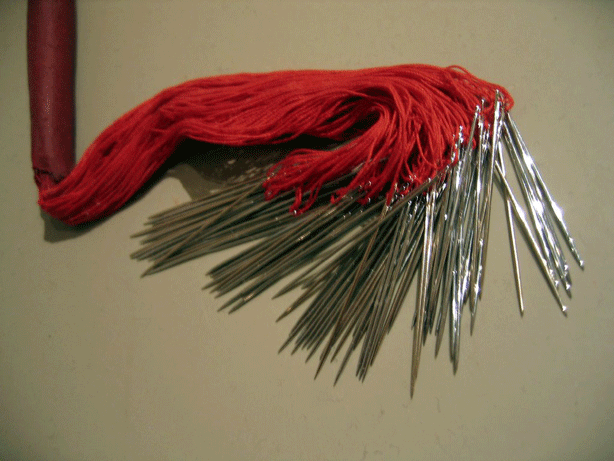
And Tell Him of My Pain examines the importance of showcasing Gender Equality, another UN Sustainable Development Goal, in art. The violence metaphorized by the needles critiques the violence against women in personal and public life: genital mutilation, period shame, female foeticide, scarce access to safe abortion and reproductive services, and mental and social barriers in a woman’s life.
Gayatri Sinha remarks in her article, “Gowda, Sheela,” that the associations of “veinous blood and menstruation, the body and its vulnerability [and] acts of sewing, suturing and reparation” become disembodied. The body and pain are only seen and showcased through an “economy of signs”.
To listen to Gowda talk about her artwork, give a tour of her custom-built studio in Bengaluru, India, and explain the role of her local community as inspiration for her work, check out her interview by Tate Modern.
